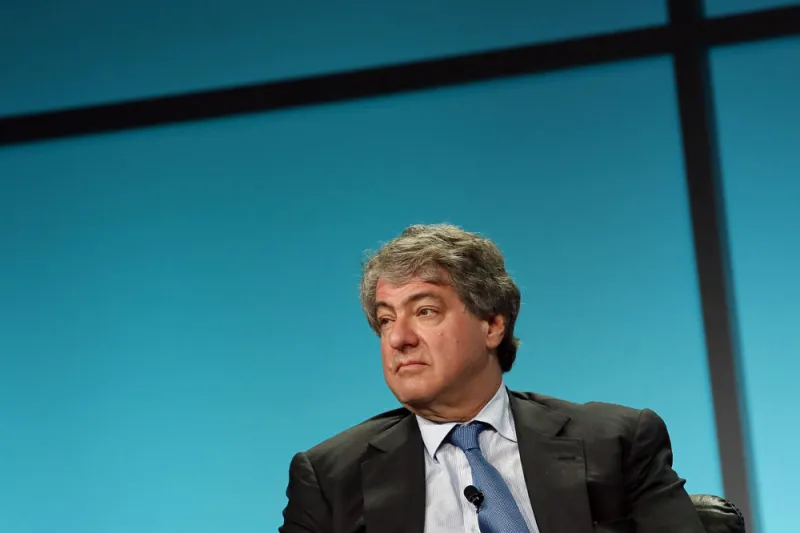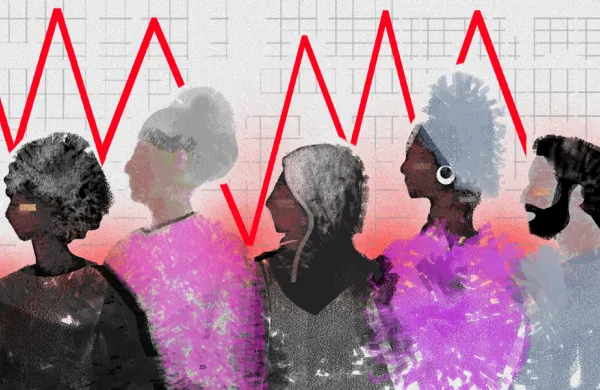The woman who previously alleged that Leon Black sexually abused her then made her sign a non-disclosure agreement has filed a lawsuit against the private equity titan.
On Tuesday, New York-based law firm Wigdor LLP announced that Guzel Ganieva, who made accusations against Black on Twitter in March, has sued him for defamation, intentional infliction of emotional distress, and gender-motivated violence.
According to the lawsuit, filed to a New York court, Black allegedly sexually assaulted and raped Ganieva, loaned her nearly $1 million, then pushed her to sign a non-disclosure agreement.
“Ms. Ganieva’s allegations of harassment and other inappropriate behavior are categorically untrue,” a spokesperson for Black said. “This frivolous lawsuit is riddled with lies and is nothing more than a wholesale fiction.” A spokesperson for Apollo Global, the firm he co-founded and has since left, did not immediately return an email seeking comment.
The catalyst for the lawsuit stems from comments Black made to Bloomberg News in April after the publication asked him about Ganieva’s tweets.
According to a statement from that article, Black said he “foolishly had a consensual affair” with Ganieva, and that she “extorted” him for many years. He went on to say he made “substantial monetary payments to her, based on her threats to go public concerning our relationship, in an attempt to spare my family from public embarrassment.”
Ganieva Tells a Different Story
The lawsuit alleges that Ganieva and Black met in 2008 at an International Women’s Day event. Ganieva, then a Russian immigrant in her twenties, and a single mother who was working as a model, began dining out with Black, who had offered to help her find work.Later that year, Black allegedly “forced sadistic sexual acts on her without her consent and despite her saying no.”
As the two continued to speak on and off, Black allegedly made career-related promises to Ganieva, including financing a movie for her to direct and buying a townhouse for an art museum that she would manage. He also allegedly arranged for her to interview with Goldman Sachs, though a job offer never came to fruition. It is unclear what roles Ganieva had interviewed for.
According to the suit, in 2011, after Ganieva enrolled in undergraduate school, Black loaned her $480,000 with a 5 percent interest rate, to cover schooling costs. Two years later, in 2013, he extended another loan for the same amount.
In 2014, following these loans, Black allegedly went to Ganieva’s Manhattan apartment when she was ill and raped her. After that incident, the suit states Ganieva left New York in an attempt to distance herself from Black. However, he allegedly continued to call her, telling her he knew of her whereabouts, who she had been with and what she was wearing.
The suit goes on to state that in 2015, Ganieva reached out to Black to meet with him, hoping to come to an agreement where he would no longer be involved in her life.
That year, Black allegedly gave her a nondisclosure agreement to sign, which, according to the suit, included provisions for loan forgiveness. Black did not give Ganieva a copy of the NDA, despite her request, the suit stated. After the meeting, Ganieva allegedly began to receive regular payments from Black. In early 2020, she sought to get a copy of the NDA, but has yet received it.
Black’s spokesperson claims that the reverse is true — that Ganieva had extorted him for this money.
“The truth is that Leon Black had a wholly consensual relationship with Ms. Ganieva for six years, and then, as we have previously advised the criminal authorities, Mr. Black was subsequently extorted by Ms. Ganieva for many years and made substantial monetary payments to her based on her threats to go public about their relationship and cause him reputational risk and harm to his family,” the spokesperson said.
Going Public
Ganieva allegedly made the decision to go public with her story after an October 2020 earnings call, in which Black said: “There has never been an allegation by anyone that I engaged in any wrongdoing, because I did not.” His comment was in relation to the publicity surrounding Black’s financial ties to Jeffrey Epstein, who Black had paid $158 million for financial advice from 2012 through 2017.The suit, which notes Ganieva had recently educated herself through law school, alleges Black’s statement in October was the tipping point for her and that “she no longer was willing to stand by and allow him to escape accountability.”
“This case is the epitome of why #MeToo exists,” said Jeanne Christensen, Ganieva’s lawyer, in a statement. “In textbook fashion, men with wealth, power and an army of elite lawyers continue to escape accountability for their heinous acts by twisting the legal system to penalize their victims for speaking up.”
“Mr. Black emphatically denies each and every spurious allegation put forth in this lawsuit and looks forward to disproving them in court,” according to Black’s spokesperson.







